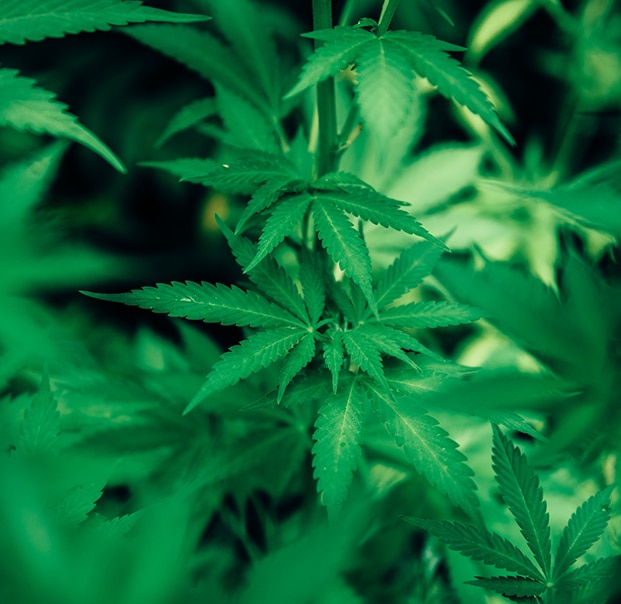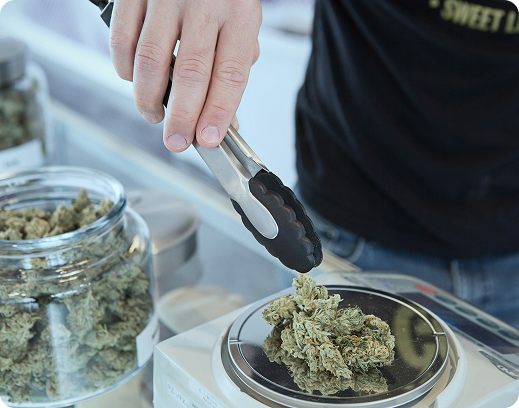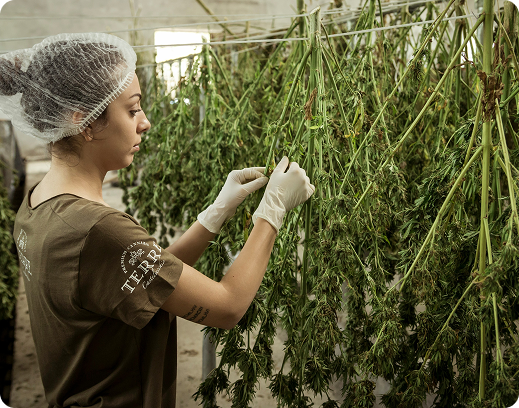How to Open a Dispensary in Washington D.C.
Learn the step-by-step process of opening a dispensary in the District of Columbia. Get insights on licensing, financing, market trends, and more.

Overview and History of Cannabis in the District of Columbia
Washington, D.C., is no stranger to the pot industry. The Capital has over 300 cannabis-affiliated ventures and more than 26,000 registered medical cannabis patients as of September 2024. From the outside, it looks like a bustling industry, but it has challenges.
There’s plenty to consider if you want to open a successful, law-abiding medical dispensary in D.C.The spotlight was once on the Capital’s gray markets created through loopholes in the previous regulations, which has been solved through recent efforts.
Cannabis was legalized for medical use in 1998, but consumers couldn’t access any until 2013. One year later, its recreational use was legalized in an overwhelming response to I-71 in 2014.
Since then, cannabis producers and consumers have been juggling with the unique market the laws have created. While adult-use cannabis is allowed, marijuana products can only be purchased from a medical dispensary. So, it remains a no-sale product for all others.
Initially, only three medical dispensaries and five cultivation centers licensed between 2013 and 2014 were active. After years of pressure for more opportunities, the administration opened several new licenses, totaling eight dispensaries, ten cultivation centers, and two testing labs.
In March 2023, the city council passed the Medical Cannabis Amendment Act of 2021 which removed the cap on medical marijuana “retailer” licenses altogether. It also allowed delivery and curbside pickup services by dispensaries and eliminated the limit on the number of plants a cultivation center can grow.
Over time, the gray market that emerged in the Capital due to the inconsistencies in the legislature is expected to diminish. Now, these semi-illegal operations can come into the safe zone by registering their businesses.
Why Start a Cannabis Business?
Opening a dispensary offers immense opportunities:
-
High Demand
With the growing acceptance of medical and recreational cannabis across multiple states and countries, dispensaries are seeing a surge in demand. Consumers are increasingly looking for high-quality products for health, wellness, and leisure, creating a constant need for reliable, accessible dispensaries.
-
Job Creation
The cannabis industry is projected to create thousands of jobs across various sectors, including cultivation, retail, logistics, and marketing. This growth not only provides employment opportunities but also contributes to local and national economies.
-
Strong ROI Potential
Entrepreneurs who navigate the complex regulatory landscape can make big returns on their investments. With proper business planning, branding, and compliance, dispensaries can tap into a rapidly growing market with high-profit margins.
Business Planning Essentials
 Developing a Strong Business Plan
Developing a Strong Business Plan
- Business Plan Components: A well-structured business plan is vital not only to the licensing process but to the investor process as well. In the plan you will want to include, but not be limited to a financial section including projections, market analysis and marketing strategies and operational plans. Your plan needs to discuss your strategy for compliance and how you plan on fulfilling all of the regulations.
- Financial Projections: Finances are to be forecasted as realistically as possible. It is also supposed to include start-up costs, ongoing operational expenses, cash flow projections, and break-even analysis. Because the opening of a dispensary is so exorbitant, some of the factors to be considered are licensing fees, security measures, and inventory costs. The financial planning has to be very comprehensive.
 Securing Financing and Investment
Securing Financing and Investment
- Funding sources: The financing of a dispensary may be very hard to come by due to the federal ban on cannabis, making it difficult to secure finances from whatever business is dealing in cannabis. Most of the owners of dispensaries are forced to seek private investors, venture capital, or cannabis-specific funding sources since traditional banks are wary of lending.
- Investor Relations: Relationships with investors who understand the cannabis industry will be of the essence. The only way to attract investment will be through transparency in your business plan, your financials, and your compliance strategy.
 Building a Knowledgeable and Compliant Team
Building a Knowledgeable and Compliant Team
- Hiring Expertise: Your team should have expertise in cannabis, retail operations, compliance, and customer service. You’ll be seeking highly experienced individuals who might bring insight into the regulatory environment and help you learn how to navigate compliance issues.
- Training and Education: Training on compliance issues, customer service, and product knowledge of your staff is a process that needs to be ongoing. Educating a team not only helps assure compliance but also serves to enhance the experience of customers.
Types of Dispensary Licenses in the District of Columbia
As a business, you can only operate under the label of a medical dispensary within the D.C. limits. Although the Safe Cannabis Sales Act of 2021 previously proposed a framework for adult-use sales through normal dispensaries, it is yet to be implemented.
The medical marijuana dispensary license has been renamed to the retailer license. There are four subcategories within it wherein businesses can receive endorsement: Delivery, Education Tasting, Safe Use Treatment Facility, and Summer Garden. These endorsements can only be availed by existing licensed businesses.
License for Medical Marijuana Retailers
Licensed Retailers may operate, sell, and deliver medical cannabis and medical cannabis products daily. They are permitted to operate between 7:00 AM and 11:00 PM, however, hours may vary based on the approval of the Alcoholic Beverage and Cannabis Administration (ABCA).
An owner can only register for one medical marijuana dispensary license, and prescribing physicians can not become owners. The fee breakdown for a license is as follows:
- Standard applicant fee: $8,000 ($2,000 for Social Equity Applicants [SEA])
- Annual fee: $16,000 ($4,000 for SEA)
- Annual fee (each corporate partner): $200
- Annual fee (each employee): $75
- Annual fee (each Manager’s license): $150
Note: The cap on retailer licenses has been removed. However, applications are only accepted in scheduled periods.
Medical Cannabis Education Tasting Endorsement
This license allows owners to host cooking classes, demonstrations, and tastings of cannabis-infused and related products, for educational purposes. It must be conducted on private property and adhere to the 7:00 AM to 9:00 PM timeframe. This endorsement type has a standard annual fee of $130.

Medical Cannabis Safe Use Treatment Facility Endorsement
By becoming a Safe Use Treatment Facility, customers can test/use their purchased cannabis products within the limits of your business. However, they must remain within a designated area of the shop (on private property).
The following guidelines are enforced within this type of facility:
- Tobacco and alcohol products are strictly forbidden.
- Non-alcoholic beverages and non-cannabis-infused food items may be sold and served.
- Only medical cardholders and their caregivers can enter the facility.
- Patients may take unused medical cannabis products home.
- Recorded or background music may be played onsite.
- Games or contests that use or award cannabis products are not permitted.
- A smoke-free area for employees to monitor the safe-use treatment facility is required.
This type of endorsement has a standard annual fee of $2,000.
Medical Cannabis Summer Garden Endorsement
For businesses that want to give customers a more comfortable open-air experience, this license permits the sale and consumption of medical cannabis and its products in a private outdoor area.
To qualify for a Summer Garden endorsement, Retailers must also hold a safe-use treatment facility endorsement. A Summer Garden is subject to the same operating hours as a Retailer (7:00 AM and 11:00 PM). This type of endorsement has a standard annual fee of $300.
Medical Cannabis Delivery Endorsement
During COVID, there was much discussion over making medical cannabis deliveries possible. This license permits businesses to transport their products to eligible patients (or their caregivers) at residential and commercial building addresses.
However, they must be within the District limits and should not be a government or Federal property. Plus, delivery vehicles can only pass through unrestricted district areas.
Curbside pick-up also comes under this license and is subject to the same rules. All forms of delivery must be between 9:00 AM and 9:00 PM. This type of endorsement has a standard annual fee of $300.
Other License Types for Cannabis in the District of Columbia
License for Cannabis Cultivators
A cannabis cultivator can grow and later distribute or sell cannabis to licensed manufacturers, retailers, and internet retailers. Licensed clients must be within D.C. for resale. If a cultivator wishes to produce cannabis products, they must also apply for a manufacturer’s license.
To qualify for a cannabis cultivator license, applicants must meet the following criteria:
- At least 21 years of age
- Be current on all tax filings and now owe the District more than $10,000
- Should not be interested in a testing laboratory, courier, or internet retailer license
- Must either be a for-profit or non-profit corporation incorporated in the District
A cultivation center may not be located within any Office of Planning-zoned residential district or 300 feet of a preschool, primary, or secondary school, or recreation center.
The following fees apply for this license type:
- Standard applicant fee: $8,000 ($2,000 for SEA)
- Annual fees (per tier)
- Tier 1 – $11,000
- Tier 2 – $16,000
- Tier 3 – $21,000
- Tier 4 – $26,000
- Tier 5 – $31,000
- Tier 6 – $36,000
- Annual fee (each corporate partner): $200
- Annual fee (each employee): $75
- Annual fee (each Manager’s license): $150
License for Cannabis Testing Labs
A testing lab can test and provide results for medical cannabis and medical cannabis products produced by licensed cultivation centers and manufacturers. They are not permitted to sell any cannabis-related products.
Similar to cannabis cultivators, those looking to obtain a cannabis testing lab license must meet the following criteria:
- At least 21 years of age
- Be current on all tax filings and now owe the District more than $10,000
- Should not be interested in a testing laboratory, courier, or internet retailer license
- Must either be a for-profit or non-profit corporation incorporated in the District
A cannabis testing lab may not be located within any Office of Planning-zoned residential district or 300 feet of a preschool, primary, or secondary school, or recreation center.
The standard license application fee is free. However, there is an annual fee of $7,500 for standard business licenses and $1,875 for SEA (reduced for the first 3 years of operation).
License for Cannabis Manufacturers
Manufacturers are allowed to process, package, and label medical cannabis products which will be sold to customers through licensed retailers and internet retailers in D.C.
Similar to other business licenses in the District of Columbia, those looking to obtain a cannabis manufacturing license must meet the following criteria:
- At least 21 years of age
- Be current on all tax filings and now owe the District more than $10,000
- Should not be interested in a testing laboratory, courier, or internet retailer license
- Must either be a for-profit or non-profit corporation incorporated in the District
A manufacturer may not be located within any Office of Planning-zoned residential district or 300 feet of a preschool, primary, or secondary school, or recreation center.
There are currently two types of manufacturing licenses:
- Type 1 – Manufacturing only
- Type 2 – Manufacturing and extraction
For producing goods using potentially hazardous material, a Type 2 Manufacturers license and an operational permit from the Office of the Fire Marshal are necessary.
The application fee for a manufacturing license is $4,000 for standard applicants and $1,000 for SEA. There is also an annual license fee of either $4,000 (Type 1) or $8,000 (Type 2). These annual fees are reduced for SEA as well.
License for Cannabis Couriers
A courier license is separate from the delivery endorsement previously mentioned. This license allows the third-party delivery of medical cannabis and related products on behalf of retailers. However, it follows the same rule as other cannabis deliveries.
The application fee for a cannabis courier license is $4,000 for standard applicants and $1,000 for SEA. There is also an annual license fee of $8,000 (standard) and $2,000 (SEA).
License for Cannabis Internet Retailers
Internet retailers receive a separate license from standard retailers. They can operate an online business with no physical presence and deliver to patients without needing a delivery endorsement. However, they are not permitted curbside or drive-through pick-up.
Similar to other license types, applicants for this license must meet the following qualifications:
- At least 21 years of age
- Be current on all tax filings and now owe the District more than $10,000
- Should not be interested in a testing laboratory, courier, or internet retailer license
- Must either be a for-profit or non-profit corporation incorporated in the District
Here are several things to note when looking to become an internet retailer:
- Internet retailers can operate daily except between the hours of 9:00 PM and 9:00 AM.
- Deliveries are permitted to be conducted by a licensed third-party courier or the internet retailer staff.
- Delivery staff are responsible for verifying the identity and age of the patient or their caregiver prior to handing over the delivery order.
- Deliveries are not permitted outside of the District or to District or federal government property.
- Internet retailers may not be located within any Office of Planning-zoned residential district or 300 feet of a preschool, primary or secondary school, or recreation center.
The application fee for an internet retailer license is $8,000 for standard applicants and $2,000 for SEA. There is also an annual license fee of $16,000 (standard) and $4,000 (SEA).
Take Your First Step Toward Success
The political position in the District of Columbia has placed great stress on its cannabis industry.
While many states can pass legislatures and swiftly move towards expanding their markets, the federal government doesn’t loosen its grip on the Capital.
After a decade of legal medical marijuana sales, adult-use sales remain unlawful. New regulations work towards finding solutions within the existing systems to open access for all eligible users, but it’s much easier said than done. For the district’s cannabis market to expand, future regulatory changes will need to prioritize accessibility and consider broader legalization measures
In recent years, the District has been experiencing much-awaited development in providing better access to users. However, their journey is nowhere near finished.
Protecting your cannabis company can seem confusing; however, we’re a full-service insurance brokerage working with carriers worldwide to offer you the best coverage possible. We’re here to help! Please reach out to us today by emailing info@alpharoot.com or calling 646-854-1093 for a customized letter of commitment or to learn more about your cannabis insurance options.

